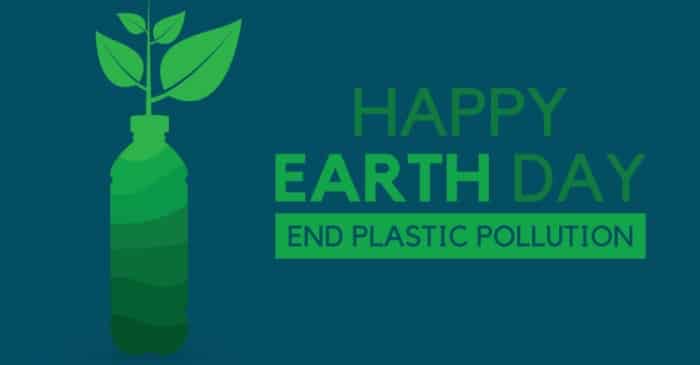
India’s Crossroads: Navigating the 2024 General Elections

Sandpiper Appoints Francesca Boase to Lead Global Professional Services Practice
Earth Day 2024: Collaborating for a Plastic-Free Future
April 2024

By Reena Mavjee, Co-lead of Sandpiper’s Energy Environment and ESG Practice. Reena specialises in Environmental, Social, Governance (ESG) advisory and investor communications. Reena works across a range of sectors including energy and environment, infrastructure, technology, and financial services , helping clients develop robust and credible ESG and sustainability strategies, communications and thought leadership content.
Today’s Earth Day, themed “Planet vs. Plastic” seeks an unwavering commitment from stakeholders across the globe to end the use of plastics, with demands for a 60 percent reduction in the production of all plastics by 2040.
Over the course of the next seven days, governments and non-governmental organisations (NGOs) from around the world will gather in Ottawa, Canada to continue negotiating the terms of the United Nations Global Plastic Treaty. The treaty aims to put into place a first-of-its-kind agreement to end plastic pollution by 2040.
Despite widespread backing for a binding global treaty, governments have encountered resistance from a small group of states prioritising profit over the wellbeing of people and the planet. With just two rounds of negotiations remaining, the outcomes reached during the week-long discussions in Ottawa hold the potential to either solidify or jeopardise the treaty’s success.
Although the increase in voluntary efforts by nations and corporations has been notable over recent decades, plastic pollution has persistently surged. Recent modelling confirms that without a comprehensive set of binding global rules, mismanaged plastic volumes would almost double, from 110 Mt in 2019, to 205 Mt by 2040.
As such, a new treaty with purely voluntary actions will not be enough to end plastic pollution.
Commitments by major multinational corporations are on the rise
Amidst the challenges, there is progress nonetheless. In recent years, major multinational corporations have significantly stepped up their initiatives to reduce plastic usage. These concerted efforts from major corporations signifies a growing recognition of the urgency to combat plastic pollution, and transition towards more sustainable packaging practices.
- Nestlé has pledged to exclusively use recyclable plastic in its products by 2025.
- L’Oréal has committed to ensuring that all its packaging is refillable, reusable, recyclable, or compostable by the same deadline.
- Procter & Gamble aims to halve its consumption of virgin plastic resin derived from petroleum by 2030.
- Unilever has set ambitious targets to cut its use of virgin plastic by 50% by 2025 and ensure that all its plastic packaging is reusable, recyclable, or compostable by that same year.
Innovative technologies offer solutions to address plastic pollution
In addition to advocating for greener economic policies that encourage circular plastic usage, digital solutions play a crucial role in enabling this transition. Technologies such as Artificial Intelligence (AI), machine learning, and digital twins can empower companies to streamline their operations, detect inefficiencies, and reduce plastic usage.
Moreover, by leveraging blockchain technology, stakeholders across the plastic supply chain can securely record and track the movement of materials, from production to disposal. This transparency enables better traceability of plastic waste, helping to identify inefficiencies and opportunities for recycling, thereby facilitating more transparent and accountable supply chains.
APAC taking action on plastic pollution
According to the United Nations, plastic accounts for a staggering 80 percent of ocean waste. Among the top ten nations contributing the most ocean waste, six are located in Southeast Asia.
The Asia Pacific (APAC) region is also home to some of the world’s largest plastic producers with countries such as China leading the charge in plastic production on a global scale. This highlights the significant role the region plays in both the generation and impact of plastic waste on our oceans and ecosystems.
With growing recognition of the urgency to combat plastic pollution, the region is taking significant steps to address this issue, with various initiatives underway.
Governments in countries such as Indonesia, Thailand, and Vietnam are implementing policies to reduce single-use plastics and improve waste management systems. Indonesia’s government will start imposing a ban on single-use plastic products by the end of 2029 while Thailand aims to shift to 100 percent recyclable plastic across the country by 2027. In Vietnam, approximately 75% of solid waste, including plastics, is mismanaged, or improperly disposed of, with less than 30 percent of plastic waste being recycled. As a result, the Vietnamese Government has developed a national action plan on marine plastic debris to 2030, incorporating the design and implementation of an integrated waste and plastic management (IWPM) programme. But across the region, recycling infrastructure requires significant improvement to meet the growing demand for effective waste management.
In addition to policies at the national level, grassroots movements and community-led campaigns have also been effective in the region, raising awareness about the environmental impacts of plastic pollution and promoting sustainable alternatives. Furthermore, innovation hubs and research institutions in APAC are developing technologies and solutions to tackle plastic waste, such as biodegradable materials and recycling innovations.
APAC’s role in the journey to a plastic-free future
As the largest regional producer of plastic, APAC is in a pivotal position to lead global efforts in tackling plastic pollution.
Viewing plastic pollution as a regional challenge that impacts numerous corporations across multiple nations, opens new avenues for collaboration to solve the problem. It emphasises the need to move beyond individual regulations or campaigns, to addressing the issue collectively as a region. Through collective action and cooperation, and increased commitments by large corporates, APAC can change the trajectory of plastic pollution and move towards a more sustainable future.




